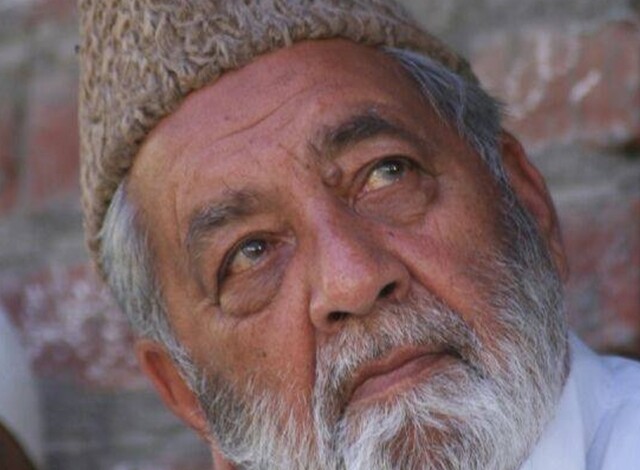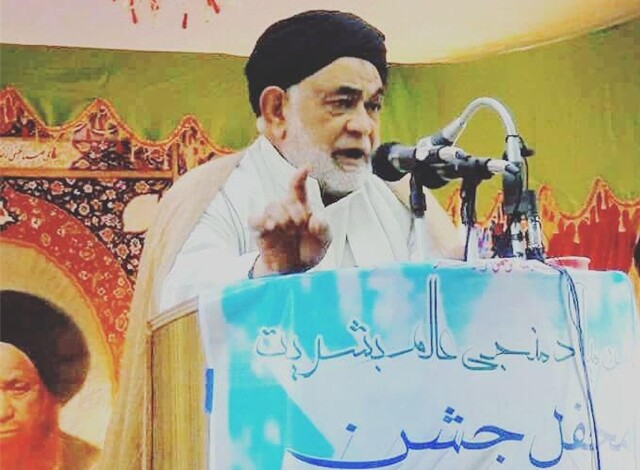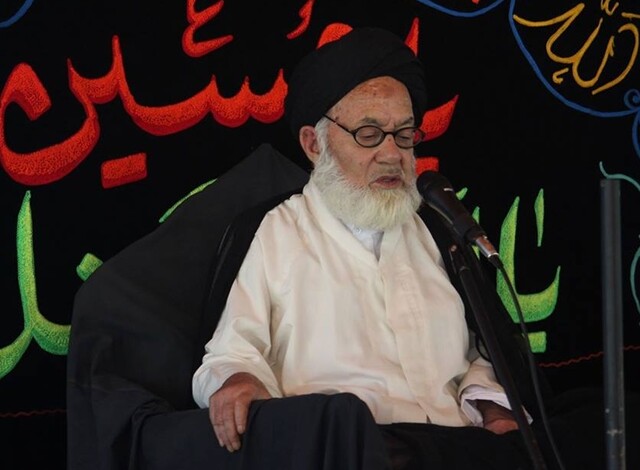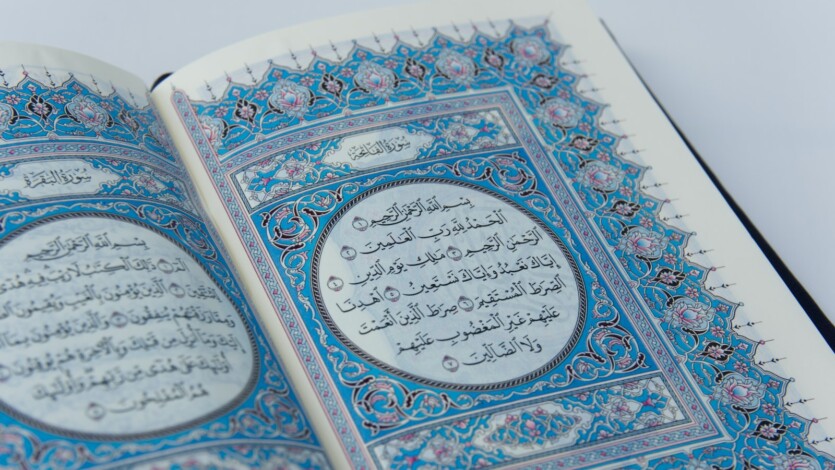

Aga Syed Mohammad Fazlullah Al-Moosavi Al-Safavi (1947-2018) was a Kashmiri Shia Scholar and cleric. He was the son of Aga Syed Yusuf Al-Moosavi Al-Safavi, president of Anjuman Sharie Shiyan, a member of the World Ahlbayt Assembly and chairman of the Ayatollah Yusuf Memorial Trust. He served as religious cleric and spread Islam Naab. He tried to unite the Muslim Ummah in Kashmir. He made Kashmir’s largest Imam Bargah at Bemina, Budgam. He died of lung cancer on 29 January 2018 in Budgam. About 1,20,000 persons attended his funeral procession, and the funeral prayer was led by Aga Syed Mohammad Baqir…

Allama Aga Syed Baqir Almosvi Kashmiri (Budgam), an illustrious son of Kashmir and an indisputable spiritual leader, who enjoys a great fame and reputation all over the prestigious theological institutions of Iraq, Iran and the sub-continent as a recluse with genuine and prominent scholarship, a theologian, reformer, orator, literati, historian, critic, researcher, jurisprudent and also an eloquent poet of Arabic, Persian, and Kashmir Besides being regarded as the real successor of his great grandfather Ayatullah-ul- Uzma Aga Syed Mehdi Al-Mosvi Al-Safvi Al-Najafi (the only jurisprudent and revivalist of the shariah in Kashmir who lived in 18th century AD) the conferee’s…

A Noha (Persian: نوحه, Urdu: نوحہ; translit. nūḥa/nawḥa), when interpreted in light of Shia views, is a lament about the tragedy of Hussain ibn Ali in the Battle of Karbala. Noha has the historical and social milieu of pre-Islamic Arabic and Persian culture. The sub-parts of Marsiya are called Noha and Soaz which means lamentation. It is usually a poem of mourning. Lamentation has a central part in the literature of the followers and devotees of the Ahl al-Bayt. The tradition of elegizing Hussain and the Karbala tragedy is not limited to Arabic speaking poets, poets from different languages have…

The advent of Islam into Kashmir in the early part of the 14th century also resulted in the introduction of marsiya into this region. The earlier marsiyas traces of which have mostly been lost closely followed the Persian format as most of the Muslim missionaries hailed from Iran or areas with heavy Iranian influences. One of the extant marsiya dating back to this period has its first stanza in Persian followed by another in Kashmiri, almost serving as a virtual translation. Though these early marsiyas showed an understandable stamp of the established Persian format, but soon local influences and ideas…

“Verily, I am leaving among you two weighty (very important) things. You will not go astray after me as long as you adhere to them. One is greater than the other is; the Book of Allah and my household. They will never separate from one another until they shall come to me at the Pond (in Paradise)” – Holy Prophet (SAW) About the recitation of the Holy Quran, Fodhayl ibn Yasar has reported Imam Sadiq (AS) as saying: “What prevents a merchant, who is engaged in business in the market, from reciting a chapter of the Holy Quran when he…
